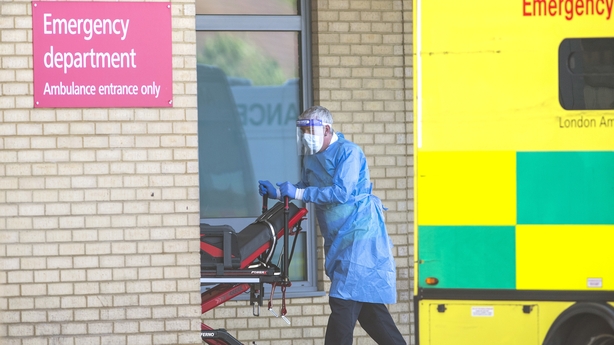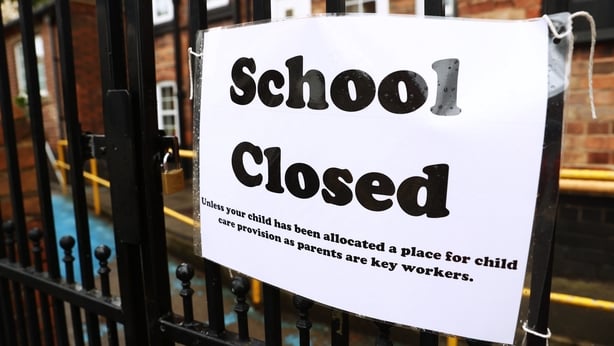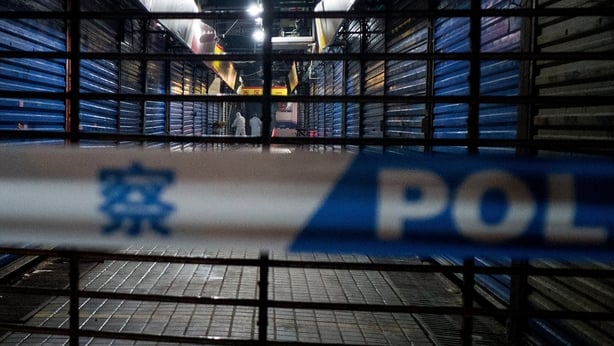The British government has been criticised over its handling of the Covid-19 outbreak as new figures suggest around 15,000 care home residents have died with the virus.
Professor Martin Green, chief executive of Care England, said pandemic planning had been completely inadequate and the government had focused on the NHS while discharging infected patients into care homes.
He told MPs on a Health and Social Care committee that despite promises from ministers, there were still huge issues with testing, with results lost and staff waiting eight to 10 days to find out if they have coronavirus.
MPs also heard evidence of how Hong Kong has not had a single care home death after adopting a policy of quarantining patients leaving hospital for three months.
Meanwhile, Germany has recorded 3,000 deaths.
Prof Green said there would need to be a "forensic examination" in the future to prevent a crisis in care homes from happening again.
He said: "We should have been focusing on care homes from the start of this pandemic.
"What we saw at the start was a focus on the NHS which meant care homes often had their medical support from the NHS withdrawn.
"We also had the disruption of our supply chains for PPE (personal protective equipment).

"We also saw people being discharged from hospital when we didn't have the testing regime up and running.
"So despite what's been said, there were cases of people who either didn't have a Covid-19 status, or who were symptomatic, who were discharged into care homes.
"Now given that care homes are full of people with underlying health conditions, I think we should've looked at focusing on where the people at most risk were, rather than thinking about a particular organisation."
Prof Green said a lot of care homes had not had the right set-up for isolating patients coming from hospitals, while other countries used separate quarantine facilities for infected patients.
'No evidence' children transmit virus
A professor of infectious disease modelling at the London School of Hygiene and Tropical Medicine, has said it may be that children are less likely to transmit coronavirus to others.
Professor John Edmunds told the House of Lords science and technology committee: "Clearly the decision to open primary schools or not, is a political one, it's not a scientific decision. Scientists can offer some advice.
"So that's potentially bad news for us, that immunity may not last that long against this virus."
"It looks like the risk to children is low, and that the vast majority don't have significant symptoms."
He added: "So the risk to others may be relatively low, but overall you have to weigh up those risks with other things - risks to community, clearly we can't keep children off school forever, and so on and so forth.
"The actual decision, and weighing all of those things, needs to be done by politicians."

Prof Edmunds said more will be known in the coming weeks about whether children can pass the virus on to teachers as data from countries that have already opened schools becomes available.
He also said the study of other coronaviruses suggested "potentially bad news" for hopes that humans could develop a long-term immunity from Covid-19.
"You can see that antibody decline over time from survivors of Sars (severe acute respiratory syndrome, a form of coronavirus).
"So after a couple of years, their antibodies have declined quite significantly.
"We can also see from other coronaviruses, from ones that cause coughs and colds, that individuals again do seem to not have particularly long-term immunity to many of those viruses, allowing them to get reinfected later.
"So that's potentially bad news for us, that immunity may not last that long against this virus."
Expert casts doubt on Trump claims over Wuhan lab
Separately, an expert has said there is no evidence to support a conspiracy theory, backed by Donald Trump, which suggests coronavirus was created in a Chinese laboratory.
The US president claims to have seen proof that Covid-19 originated from an infectious disease laboratory in Wuhan.
At the start of May he speculated that China could have unleashed the virus on the world due to some kind of horrible "mistake", and even put forward the idea the release was intentional.
However, Professor David Robertson told the House of Lords Science and Technology Committee there was no evidence to back the theory.
"I don't think we're clever enough to have designed this virus - it's far too unique."
He said: "It (the theory) seems unlikely given the emergence of an animal market.
"You have a virus that you think comes from an exotic species and then you have a wildlife market - that seems the most parsimonious explanation."

Asked whether a Covid-19 sample found in a Wuhan lab, thought to be about 40 to 50 years old, could have been behind the initial outbreak, the head of viral genomics and bioinformatics at the University of Glasgow added: "No, absolutely not.
"That's partly what has driven some of these conspiracy theories, is what is the chance they would have this virus in the labs that is close? And actually, even though it is close in sequence, it is not close in time."
Prof Robertson added: "There is really no evidence for this. We can all enjoy a conspiracy theory but you need to have evidence."
The committee also heard that Covid-19 is unpredictably different from what had been discovered.
He said: "I don't think we're clever enough to have designed this virus - it's far too unique."

